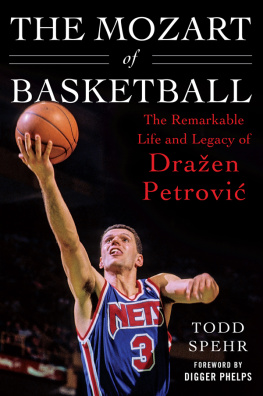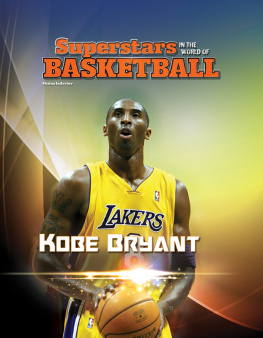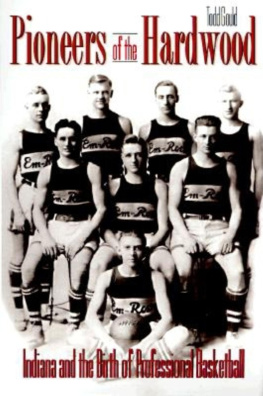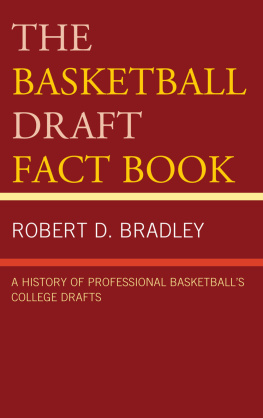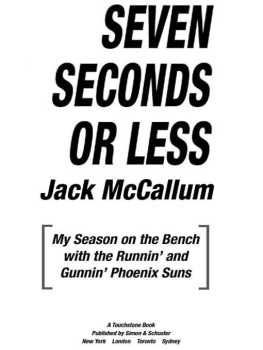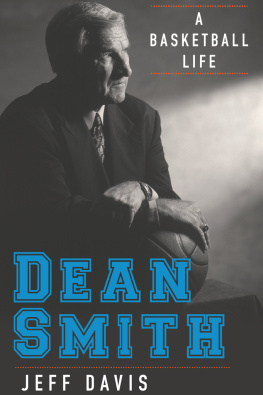Copyright 2014, 2016 by Todd Spehr
Foreword copyright 2016 by Digger Phelps
First Sports Publishing edition 2016
All rights reserved. No part of this book may be reproduced in any manner without the express written consent of the publisher, except in the case of brief excerpts in critical reviews or articles. All inquiries should be addressed to Sports Publishing, 307 West 36th Street, 11th Floor, New York, NY 10018.
Sports Publishing books may be purchased in bulk at special discounts for sales promotion, corporate gifts, fund-raising, or educational purposes. Special editions can also be created to specifications. For details, contact the Special Sales Department, Sports Publishing, 307 West 36th Street, 11th Floor, New York, NY 10018 or .
Sports Publishing is a registered trademark of Skyhorse Publishing, Inc., a Delaware corporation.
Visit our website at www.sportspubbooks.com.
10 9 8 7 6 5 4 3 2 1
Library of Congress Cataloging-in-Publication Data is available on file.
Cover design by Tom Lau
Cover photo courtesy of Steve Lipofsky, Basketballphoto.com
Print ISBN: 978-1-61321-917-1
Ebook ISBN: 978-1-61321-918-8
Printed in the United States of America
For Draen
TABLE OF CONTENTS
Preface
DECEMBER 1985
Zagreb, Croatia
It was classic Draen Petrovithe way the Europeans remember him. This was before he or the game he had attempted to perfect became globalized, when his stardom in Yugoslavia was growing and appearing boundless. There was the small bob of curly hair, a band on his right wrist, mouth open and tongue out, eyes darting, almost desperate to create the next play. He would move the ball from one end of the court to the other with so much speed and grace. There was something beautiful about the way he pushed the ball up the floor, as if the activity itself had not changed since he was but a small boy in the coastal Croatian town of ibenik. It was honed. The ball could switch from one hand to the other in an instant, and with space he could leap in the air and place that ball between his legs; there being a split-second when he was suspended in mid-air, with the possibility that it could be whipped either to the right or left to an open teammate.
With his ball handling and passing there was seemingly endless showmanship, some instinctive, some deliberate, but his game was balanced by the pure fundamentals in his jump shot. Structurally, it was perfect, never strained or unbalanced. His older brother, Aleksandar, himself an accomplished basketball player, had kidded him in youth, years earlier, about that jump shot, before the spotlight had found him, and from that he had transformed himself into the best shooter in Europe. Work was not his secret as much as it was his covenant.
What followed each conversion or breathtaking pass was mass syncopated jubilation. His adorers loved him for the way that he involved them; his opponents and their fans conversely disliked him, making him as polarizing and divisive as any European athlete of the mid- eighties. He would inevitably turn to the crowd, either jumping in the air or pumping his fist, sometimes both, and be met by extreme din or silence. Whatever the situation, it was consistent; in every game that Petrovi played he made the crowd feel something .
Nothing illustrated this point more than a European Cup contest in Zagreb late in 1985, a game between Petrovis Cibona and Simac of Italy. There was a writer watching this event; not just any writer, but one of the best in Europe, noted basketball scribe Enrico Campana of La Gazzetta dello Sport . The Italian paper was nothing if not a sports Bible, not only for Italy but for all of Europe, unmistaken in appearance with its pink paper and superior coverage. It had over the years sent Campana to every major tournament, every notable basketball event; and he had seen all the best players who emerged on the continent since the middle part of the sixties. There was always for Campana a special fascination reserved for Yugoslavian players. He loved to watch them play up close, for there was something special about their love for the game and the quality of performance. Campana had once begged his editor to allow him to spend a week with the legendary Yugoslav coach Aleksandar Nikolic at his training facility in Belgrade to study the bodies of the players, watch them run drills, and develop a technique that seemed exclusive. To discover the secret about the Yugoslavian players, he pitched to his editor.
Through his work, Campana had become close with the giant personalities of the sport in Yugoslavia. They included Nikolic, Boris Stankovi, and Mirko Novosel. It was Novosel who told Campana that he must come to Zagreb in Croatia and see some of the quality young players, the next generation who, too, would carry the secret , players who would be coming through the system, and who one day would be playing on the biggest stages.
Campana complied, and it was there that he had first spotted Draen Petrovi.
The young man stood out because of the skills with which he played, confident, so fluid, a singular flash able to pour out of those fundamentals in an instant. It had prompted a further pursuit of background information, and it led to Campana having a conversation with Petrovis mother, Biserka. What she said captivated the writer, at that point developing in him the idea that Draen Petrovi was as much a myth as he was a great basketball player. Draen had, Campana discovered through Petrovis mother, struggled as an infant, born with a subluxation of the hips that was of great concern for the family. His legs were slow in developing, and it seemed likely that he would be different physically from the other children. But he has a special internal force, she told Campana, that broke the barriers.
Campana was suddenly burdened with the ultimate challenge for any journalist: writing about someone for whom he held a great admiration, and yet at the same time trying to convey to the readers that he was somewhat objective. When I followed Draen I did not consider myself a very balanced and honest journalist. I was a supporter, Campana said. I looked at Draen like my younger brother or young kid. I wished him well.
Some years passed, and now the young man had arrived at his promised bright future, composing a performance that exceeded even the pre-packaged expectations; one that was being achieved regularly in the Yugoslav league and in the international tournaments. Campana saw the performance and was immediately obligated to put it into words for his newspaper. There in his mind was the vision: the unmerciful way that Petrovi was attacking his opponents, the blend of showmanship and acquired skill, the unique way with which he executed his craft.
Mozart
The name just came to him. Campana thought about it some, and it seemed to fit. Mozart had been composing music from an early age, not just writing it but doing so in a brilliant fashion, part genius, part prodigy. Petrovi had been thought of as something of a prodigy, too, in his hometown of ibenik, even then bearing an uncommon connection to his chosen path. What was before Campana and the fans was the resulting athletic life. There was an experience in watching Petrovi that Campana had not felt with other players. There was little NBA coverage in Europe at that time, the occasional game beamed back from America, but it was always enough to get a taste. Campana looked at those telecasts and then looked at Petrovi, and drew a conclusion: He plays like them . He played the American game like the Americans, Campana thought, the first European he had seen who played the game in such a way.

